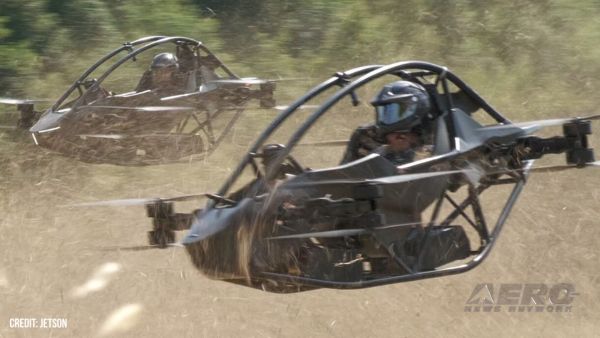Fri, Nov 18, 2005
Advertisement
More News
 ANN's Daily Aero-Term (07.12.25): Secondary Radar/Radar Beacon (ATCRBS)
ANN's Daily Aero-Term (07.12.25): Secondary Radar/Radar Beacon (ATCRBS)
Secondary Radar/Radar Beacon (ATCRBS) A radar system in which the object to be detected is fitted with cooperative equipment in the form of a radio receiver/transmitter (transponde>[...]
 ANN's Daily Aero-Linx (07.12.25)
ANN's Daily Aero-Linx (07.12.25)
Aero Linx: Australian Society of Air Safety Investigators (ASASI) The Australian Society of Air Safety Investigators (ASASI) was formed in 1978 after an inaugural meeting held in M>[...]
 ANN FAQ: Turn On Post Notifications
ANN FAQ: Turn On Post Notifications
Make Sure You NEVER Miss A New Story From Aero-News Network Do you ever feel like you never see posts from a certain person or page on Facebook or Instagram? Here’s how you c>[...]
 Classic Aero-TV: Of the Aeropup and its Pedigree
Classic Aero-TV: Of the Aeropup and its Pedigree
From 2023 (YouTube Edition): Barking up the Right Tree Australian-born, the Aeropup is a remarkably robust, fully-customizable, go-anywhere, two-seat, STOL/LSA aircraft. The machin>[...]
 Airborne 07.07.25: Sully v Bedford, RAF Vandalism, Discovery Moving?
Airborne 07.07.25: Sully v Bedford, RAF Vandalism, Discovery Moving?
Also: New Amelia Search, B737 Flap Falls Off, SUN ‘n FUN Unveiling, F-16 Record Captain Sully Sullenberger, the pilot who saved 155 people by safely landing an A320 in the Hu>[...]
blog comments powered by Disqus



